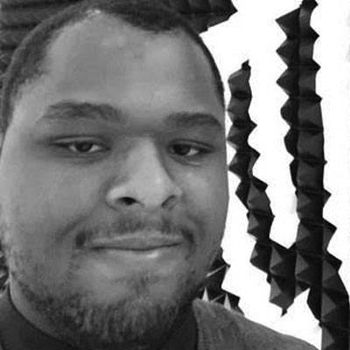U. of Md. names a law class after Freddie Gray
Freddie Gray, a 25-year-old African American who was arrested for carrying an illegal weapon and circumstantially killed during his detention, will have a course dedicated in his honor at the University of Maryland, Baltimore.
The one-credit course, called “Freddie Gray’s Baltimore: Past, Present, and Moving Forward,” is designed to “examine the recent unrest itself and then examine the causes of, and possible solutions to, those dislocations, including an examination of problems in policing; criminal justice; housing; healthcare; education; poverty; and community development and joblessness,” according to the course description.
The course “is intended to be a springboard for further student and faculty involvement in citizen and government efforts to reform law and policy in the subject matter areas listed above.”
In keeping with that objective, which UMB describes as being “part of a larger effort … to engage and revitalize the West Baltimore community,” students will also be apprised of volunteer opportunities to work on those issues, though there is currently no requirement that they participate.
“We see this course as an opportunity for our students to grapple with important issues in their backyard,” Dean Donald Tobin said in a press release. “We want not only to educate our students but to inspire them to act on what they’ve learned and work with our neighbors in West Baltimore to strengthen our community and city.”
The new course will be offered starting in the fall 2015 semester, but so far the school has not offered details about the curriculum other than to say that required readings will be no more than 20 pages and that pass/fail grades will be awarded based on attendance and an 8-10 page paper proposing a solution to the ongoing unrest in Baltimore.
The eight-week course will be supervised by Professor Michael Greenberger of the university’s Francis King Carey School of Law and School of Social Work, and taught by nine other law school professors.
Professor Barbara Bezdek, one of the nine instructors, took to Twitter last year on behalf of an organization called Color of Change to demand that the crowdsourcing website GoFundMe take down and return the profits from a page seeking contributions to the legal defense fund of Darren Wilson, the police officer who killed Michael Brown in Ferguson, Missouri—allegedly in self-defense.
Professor Michael Pinard, who criticized Maryland Gov. Larry Hogan’s (R) veto of a bill that would have extended voting rights to ex-felons on the grounds that it “would allow a person convicted of a felony to register to vote when the individual is released from prison even if they are still subject to parole or probation.”
In response, Prof. Pinard tweeted, “Sad day for voting rts in Md as Gov Hogan vetoes bill that restored rts upon release from prison…”
Another law school professor, Sherrilyn Ifill, was initially listed as a “tentative” organizer and teacher in a syllabus that Prof. Greenberger provided to The Baltimore Sun, but is currently on a leave of absence from UMB and is no longer mentioned in the course description.
Ifill also serves as President and Director-Counsel of the NAACP Legal Defense and Educational Fund, in which capacity she was quoted in a press release saying the looting and rioting that prompted Maryland to declare a state of emergency in Baltimore following Freddie Gray’s death “should by no means tarnish what have otherwise been peaceful protests by Baltimore citizens who have legitimate concerns about the conduct of law enforcement towards African-Americans.”
She then went on to blame police for the breakdown of order in the city, claiming that, “[t]he events in Baltimore are part of a larger systemic problem in law enforcement.”
Follow the authors of this article on Twitter: @FrickePete & @C_Spencer_

